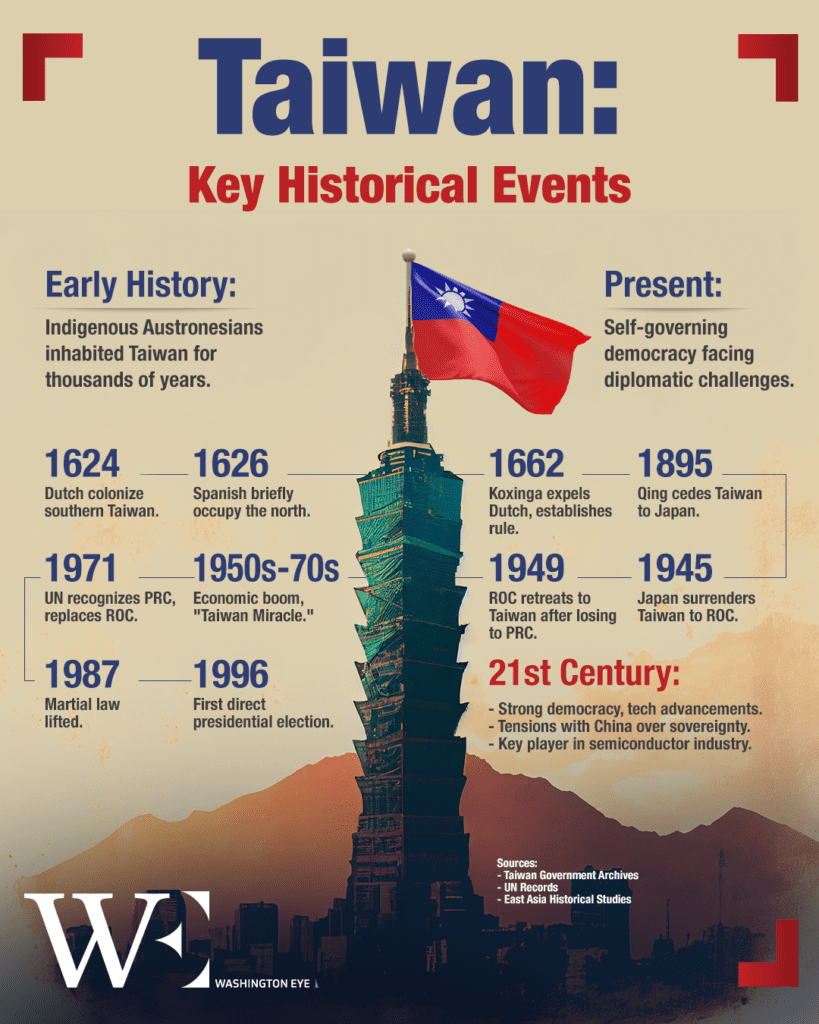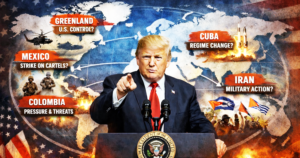In a move that has escalated tensions between the United States and China, the U.S. State Department has recently updated its online fact sheet about Taiwan, notably removing the long-standing statement that the U.S. does “not support Taiwan independence.”
This alteration, made public on February 17, 2025, has been met with strong condemnation from Beijing, which views Taiwan as an integral part of its territory.
Beijing’s Response and Taiwan’s Reaction
China’s Foreign Ministry swiftly denounced the change. Spokesperson Guo Jiakun stated, “This move severely violates the one-China principle and the three China-U.S. joint communiqués, goes against international law and basic norms of international relations and sends a seriously wrong signal to the separatist forces.”
Guo further urged the U.S. to “immediately correct this mistake” to prevent further damage to China-U.S. relations and to maintain peace and stability in the Taiwan Strait. In contrast, Taiwan has welcomed the updated language as a sign of strengthening ties with Washington. The Taiwanese government expressed gratitude for the U.S. State Department’s update, interpreting it as a reflection of the close and amicable partnership between Taiwan and the United States.
Historical Context
Since the 1970s, U.S. policy toward Taiwan has been characterized by “strategic ambiguity.” The Taiwan Relations Act of 1979 has governed unofficial relations between Washington and Taipei, allowing the provision of defensive arms to Taiwan without explicitly supporting its independence. The recent change in the State Department’s fact sheet marks a significant shift from previous administrations’ cautious stance on the issue.
This development comes amid already strained relations between the U.S. and China, with disputes ranging from trade to human rights issues. Analysts suggest that the updated language could be interpreted by Beijing as a provocative act, potentially leading to increased military posturing in the region. Professor Kerry Brown, an expert on Chinese politics, noted that such changes in U.S. policy language might reflect deeper strategic struggles between the two nations.
Despite the removal of the explicit statement opposing Taiwan’s independence, U.S. officials maintain that there has been no change in the fundamental “one-China” policy. A State Department representative described the update as routine, emphasizing that the United States remains committed to preserving peace and stability in the Taiwan Strait and opposes any unilateral changes to the status quo from either side.
The change has also drawn attention from other countries in the region. Canada, for instance, has faced criticism from China for actions perceived as interference in the Taiwan Strait, highlighting the broader international implications of the U.S.’s updated stance.
The U.S. State Department’s recent alteration of its Taiwan fact sheet has introduced a new variable into the complex dynamics of U.S.-China-Taiwan relations. While Taiwan views the change as a positive affirmation of its relationship with the United States, China perceives it as a serious violation of established diplomatic principles.
















